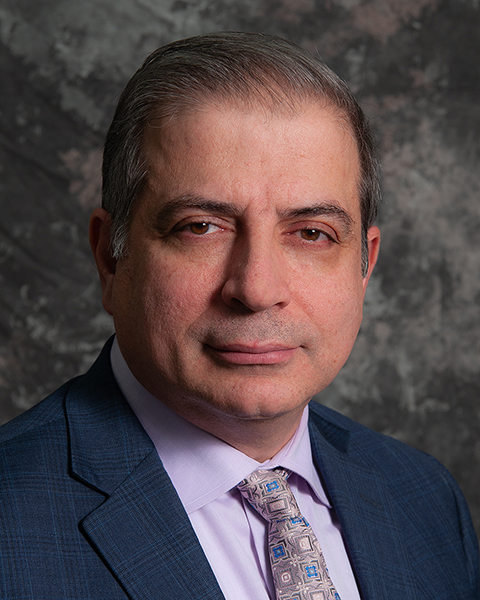
Normal Pressure Hydrocephalus Treatment
Hydrocephalus Treatment
Normal pressure hydrocephalus, or NPH, is a condition caused by backed-up cerebrospinal fluid in the brain. If left untreated, NPH can cause symptoms that mimic dementia or stroke, such as memory loss or speech problems, as well as other problems with walking and urinary continence.
Penn Highlands neurosurgeons have extensive experience in treating NPH with ventricular shunting. In this neurosurgery procedure, the neurosurgeon inserts a thin tube into the brain that drains cerebrospinal fluid into the body. The decreased fluid relieves the pressure, which reverses symptoms.
Ghassan Bejjani, MD, chief of neurosurgery at Penn Highlands Neurosurgery, is a national expert in ventricular shunting. Dr. Bejjani uses a shunt that can be programmed for each patient to regulate the amount of fluid that is drained.
Successful shunting of NPH can reverse the symptoms. For this reason, NPH-induced dementia is considered reversible.
Diagnosing Normal Pressure Hydrocephalus
Babies can be born with hydrocephalus. Hydrocephalus also can be caused at any age by a head injury, stroke, infection, or brain tumor. Normal pressure hydrocephalus is a type of hydrocephalus that develops more slowly over time. NPH occurs mostly in adults over age 60. Because the condition can cause dementia symptoms, it often goes undiagnosed or is misdiagnosed as dementia or even Parkinson’s disease, due to the effect it sometimes has on gait and speech. Some experts believe as many as 6 percent of residents in nursing homes who are thought to have dementia may actually may have undiagnosed NPH.
If a patient shows symptoms of NPH, the neurosurgeon uses imaging to check for enlarged ventricles. If NPH is suspected, patients may be given a spinal tap to remove extra CSF. If the symptoms improve, NPH is confirmed and shunting is thought to be a viable treatment, dependent upon the patient’s overall health.
Ventricular Shunting to Treat NPH
Patients who undergo a shunting procedure stay overnight in the hospital. They are seen two weeks later by the neurosurgeon at the Penn Highlands Neurosurgery clinic closest to their home. Patients typically see improvement in their symptoms within one to three months. If patients don’t see enough improvement, the valve is adjusted to allow more CSF to drain. Likewise, the valve can be adjusted to restrict the CSF flow, reducing the risk of a subdural hematoma. The adjustable valve used by Dr. Bejjani has many different flow settings.
If you believe your loved one has NPH, talk to your doctor or call Penn Highlands Neurosurgery at 814-503-4433.

Neurosurgery
Penn Highlands Neurosurgery - DuBoisA Service of Penn Highlands DuBois
Penn Highlands Neurosurgery - Greensburg
Penn Highlands Neurosurgery - Huntingdon
Penn Highlands Neurosurgery - Monongahela
Penn Highlands Neurosurgery - Uniontown

Neurosurgery
Penn Highlands Neurosurgery - DuBoisA Service of Penn Highlands DuBois
Penn Highlands Neurosurgery - Greensburg
Penn Highlands Neurosurgery - Huntingdon
Penn Highlands Neurosurgery - Uniontown

